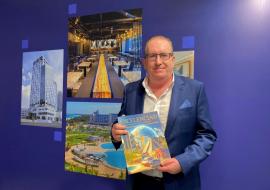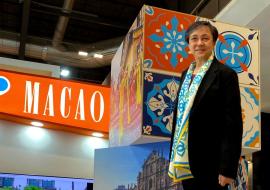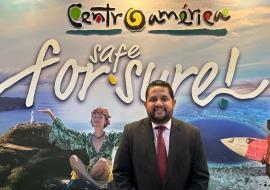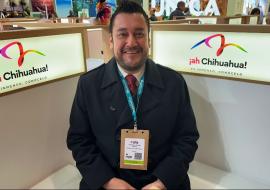Q & A with Manuel Giró Ribot, President of MG Distilleries
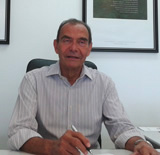
Manuel Giró Ribot is the President of DESTILERIAS MG, a family business with over three generations committed to distilling tradition, quality and innovation. With presence in more than 25 markets, the company has been given the most demanding certification within the European and international food sector: the IFS (International Food Standard) certification regulations.
Such acclaimed gin brands as MG, Masters and Mare, along with Barceló rum, make up the product portfolio of a company that has held a long-lasting relationship with Cuba and it presently is the main distributor of alcoholic beverages in that country, in terms of importation products.
When was your company founded?
— Our company is very old. It was already operational by the end of the 19th century. It was a family business devoted to another sector and it later became MG, mainly devoted to the production of gin and we began making the MG gin in 1940.
Within Spain, where is your company specifically based?
— We’re in the province of Barcelona, in Vilanova to be precise. That’s where we have our distillery and the bottling plant.
What’s the current production volume of your gin?
— We presently have three gin brands: MG is the oldest one, the very first one, and targets the middle segment of the market; then we have Masters, a Premium gin that is gaining momentum, is growing, but it hasn’t been for over 10 years in the market; and we have recently launched another brand, a Super Premium: Mare gin, with quite different characteristics.
Gin-tonic is now very popular and is taking a Premium position in terms of cocktails. We’re making the most of this circumstance to develop this range of gins that actually positions us in a privileged level in the sector.
What Latin American countries are the targets of your exports?
— Latin America is not a high consumer of gin, but we are present in several markets. We’re already into Mexico. We’re also marketed in the Dominican Republic, Cuba, Colombia, Chile and Peru.
Do you work with distributors or you do it on your own?
— We work with distributors.
Do you also export your products to the United States?
— We’re taking the first steps into the United States with Masters. We have been working with the North American market for nearly a year, but it’s a difficult and slow market, with huge potential.
When it comes to exporting to the European market, do you work with the Russian market?
— All producers are interested in the Russian market. We’re making the first moves, but we’re not there yet.
What are the potentially most important markets for you when it comes to exporting?
— United States is a great market. As for Europe, we’re even selling our products in England, the cradle of gin; we’re also in Germany, Holland, Belgium, Switzerland, France, Italy and Portugal, among other countries.
Beyond the gins, your company is also a distributor of spirits.
— We have the utmost distributor in Cuba. We have prestigious brands on the Island and we’re the number-one distributor of spirits in the country, in terms of imported products. Havana Club is possibly the most consumed brand here.
Within your product portfolio, do you have other alcoholic products, leaving the gins aside?
— Yes. We also produce vodka and a series of blending products, the pre-mixes, I mean, combinations of gin, vodka and whisky with soft drinks. We’re marketing this line of products around the world, with special emphasis on countries of the Asian South East. It’s a very personal product, ours, there are just a few brands making it.
You develop tonic water and that’s very important as it is closely linked the characteristics of your gins.
— Yes. We launched this product last year, especially in the Cuban market.
Don’t you use in the Spanish market?
— No, we don’t.
When did you first work with Cuba?
— We started back in 1987 with the distribution of Havana Club for Spain. We carried out that activity until 1994 and that made us decide to come here and work on other projects. We had a mixed company to produce beverages and soft drinks. We later created our office here to distribute spirits.
How long have you been in the Dominican Republic?
— Since 2000, when we bought Ron Barceló with Varma, which is presently distributed in over 50 countries. In terms of rums marketed out of their producing countries, we’re the fourth world brand.
Are you still a family business?
— Yes, we’re a family. This is the third generation. The company was created by my father, I’m working on it and my sons have joined me.










